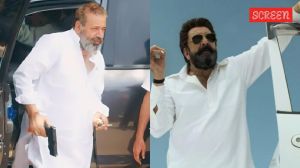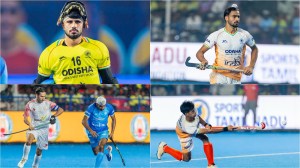Warheads exist even 30 years after NPT: IAEA chief
Even after 30 years of the nuclear Non-Proliferation Treaty (NPT), there are still 36,000 war heads in the world which need to be dismantled...

Even after 30 years of the nuclear Non-Proliferation Treaty (NPT), there are still 36,000 war heads in the world which need to be dismantled, Director- General of International Atomic Energy Agency Mohamed Elbaradei said here today.
Speaking at the 15th annual conference on ‘‘nuclear technology and societal needs’’, organised by the Indian Nuclear Society at Bhaba Atomic Research Centre here, Elbaradei said: ‘‘As I have repeatedly stated that nuclear arms control and global security go hand in hand, the two topics must be addressed in parallel.’’
It should not come as a surprise that regions facing security deficit are those where proliferation concerns exist the most, he said, adding that concrete dialogue on the issue should begin without delay.
‘‘India is one of the very few nations that have not acceded to NPT and has made the choice to pursue nuclear weapons,’’ he said.
Neverthless, India would be willing to contribute its insights and ideas on how we should move forward to strengthen regional and global security in which nuclear weapons have no place, the IAEA Director-General said.
He said events like terror attacks on the US have propelled a rapid and dramatic re-evaluation of the risks of terrorism in all its forms, including the threat of nuclear and radiological terrorism.
In the past three years, the agency’s efforts to help member states increase their nuclear security has increased at an exceptional pace, Elbaradei said. He said the IAEA has strengthened its cooperation with international organisations such as Interpol, Europol, the Universal Postal Union and specialised United Nations agencies for the purpose.
IAEA member states have been more supportive in providing financial and in-kind resources to fund a broad range of actions to reduce the threat of bombs as a terrorist weapon, he said, adding that India too, had contributed in the upgrading of the code of conduct on the safety and security of radioactive sources.
Elbaradei also said the agency has recently been able to demonstrate in Iraq, Libya and Iran how effective agency verification can be, even under difficult conditions, provided that we are granted the required authority and access to relevant information.
However, no strengthened safeguard measures can be fully effective without addressing in parallel the causes of insecurity that provide incentives to acquire nuclear weapons, the IAEA chief added.
Principal scientific advisor to the Union Government, R. Chidambaram, Atomic Energy Commission Chairman Anil Kakodkar and Atomic Energy Regulatory Board Chairman S.P. Sukhatme were also present on the occasion.
- 01
- 02
- 03
- 04
- 05






























